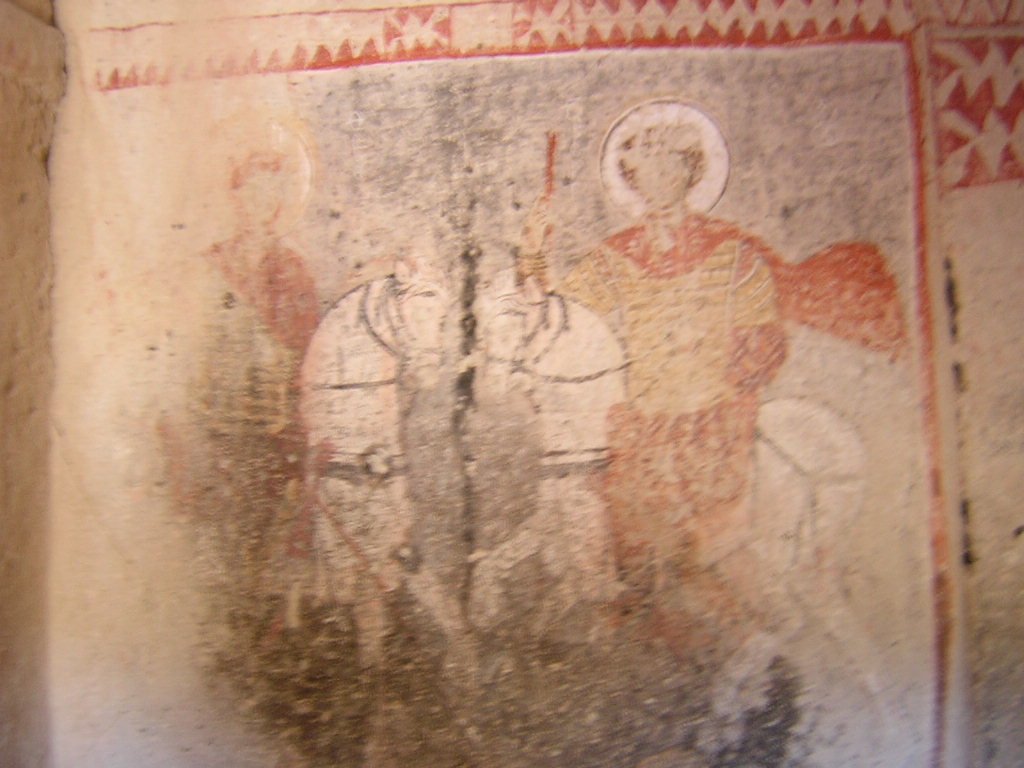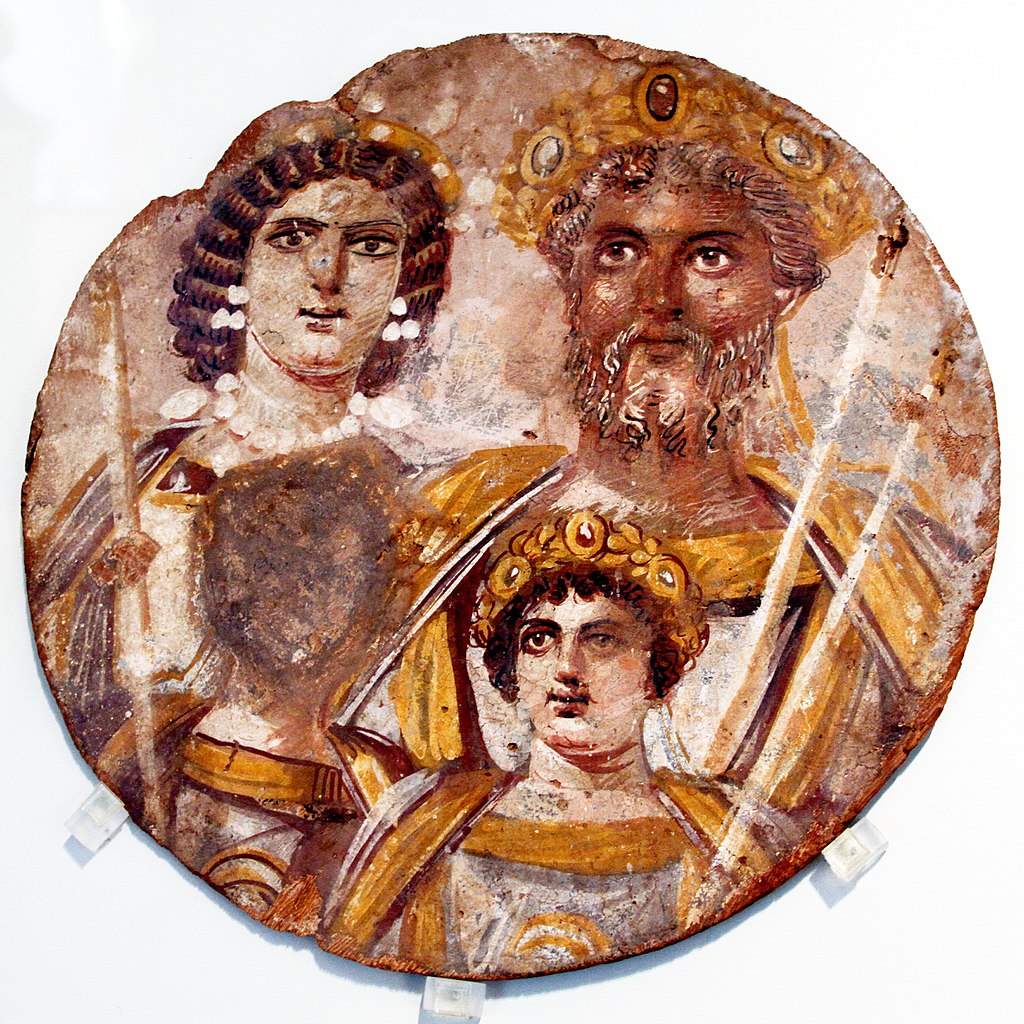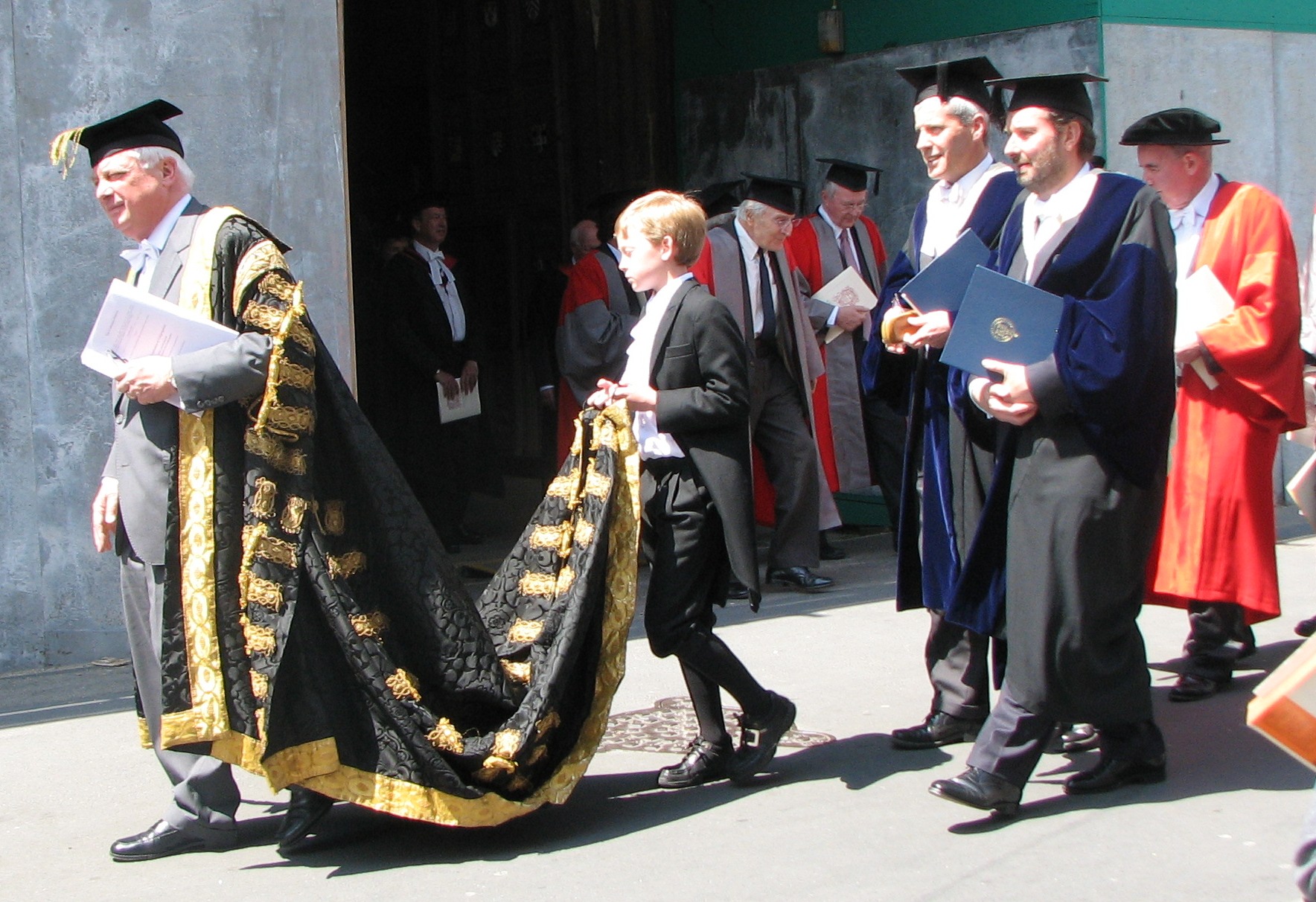 Thanks to Dr. Jack Singal of Physics for this excellent choice.
Thanks to Dr. Jack Singal of Physics for this excellent choice.
In the original religious sense, an iconoclast defaces (literally) or destroys icons. It could also apply in secular cases, for rulers whose memory and images got erased from history by decree: consider the Roman practice of Damnatio memoriae, as in this instance. According to the Wikipedia entry for this Second-Century image, “Geta’s face has been erased, because of the damnatio memoriae ordered by his brother after the fratricide.” One does not get erased for trifling reasons. To see the most famous candidate for this fate, visit the Virginia Museum and be sure to say hello to the Emperor Gaius Julius Caesar Augustus Germanicus, better remembered as Caligula. His statue in Richmond is one of only a few that survived his erasure. The stories about his madness and depravity still echo down the millennia.
According to the Wikipedia entry for this Second-Century image, “Geta’s face has been erased, because of the damnatio memoriae ordered by his brother after the fratricide.” One does not get erased for trifling reasons. To see the most famous candidate for this fate, visit the Virginia Museum and be sure to say hello to the Emperor Gaius Julius Caesar Augustus Germanicus, better remembered as Caligula. His statue in Richmond is one of only a few that survived his erasure. The stories about his madness and depravity still echo down the millennia.
As for the evolution of our word, The OED Online gives a good sense of how being an iconoclast came to mean something secular, anyone who wishes to tear down established beliefs or ideals. The American Heritage Dictionary also provides usage notes for how the word now includes this sense; that is, in fact, the reference work’s first definition.
But let’s travel back a bit in time. I had the dubious privilege of seeing the work of the original iconoclasts first-hand, during a 2005 visit to the stone cities of central Anatolia.
Note how, in my first photo, the faces of both Byzantine figures are removed. That’s not by centuries of fading, as in the rest of the imagery. Getting closer, one can see the gouges where someone meticulously scraped away the visages. The Deutsches Historisches Museum has a fine page about the history of Christian iconoclasm, but the practice stretches back to Antiquity. What I saw in Anatolia was comparatively recent iconoclasm, dating to some point between the 5th and 9th Centuries.
More recent iconoclasm happened in the former Warsaw Pact nations and Iraq. If Richmond’s Confederate monuments ever come down, even to stand with the far less ambiguous Caligula in our museum, it’s also the same ancient urge at work. Often the images are not destroyed, as with Saddam Hussein’s statue below, but removed from places of prominence and stored or hidden. There’s a fine post about a graveyard for Soviet statues in Estonia here at “Travel Turtle.”
 Increasingly, I hear those who go against accepted opinion and tastes “just because” called iconoclasts. They are, perhaps more accurately, merely contrarian. Guilty as charged. Now where’s the image I can deface?
Increasingly, I hear those who go against accepted opinion and tastes “just because” called iconoclasts. They are, perhaps more accurately, merely contrarian. Guilty as charged. Now where’s the image I can deface?
You can hear more of Professor Singal’s erudition in his interview by President Crutcher, in “Astrophysics and Big Data.”
This blog will continue all summer, so nominate a word by e-mailing me (jessid -at- richmond -dot- edu) or leaving a comment below.
See all of our Words of the Week here.



